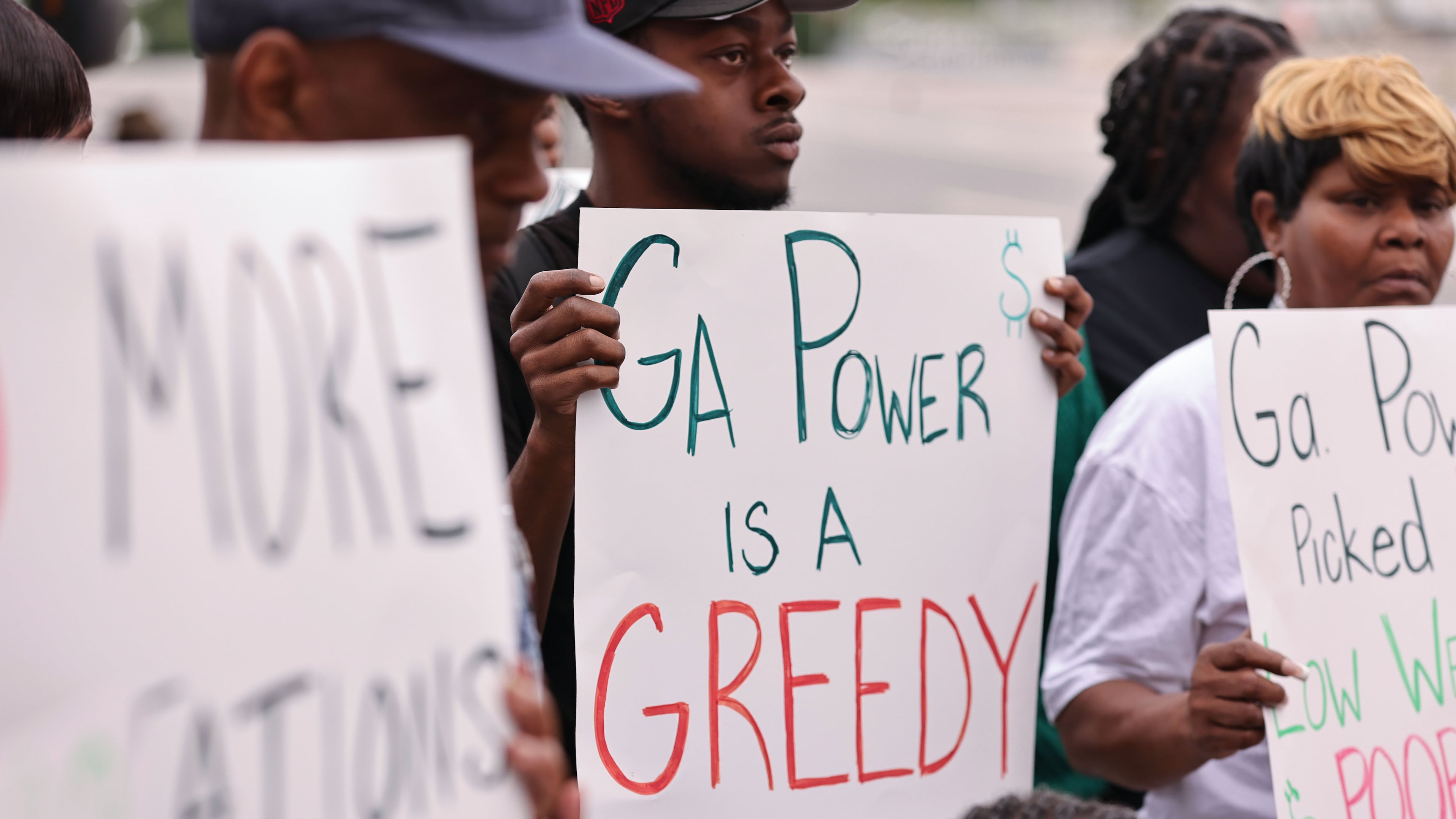Ballrooms and Great Gatsby lose to high power bills in Georgia

On any given day, you’d call Georgia a battleground state politically, but it is still more red than blue. Republicans hold every constitutional office in the state and dominate both chambers in the Georgia General Assembly. They’ve got money, incumbents, a ground game, nine of 14 U.S. House seats and just sent President Donald Trump back to the White House.
But on Tuesday, Democrats delivered a 26-point rout in two usually low-profile races for the Georgia Public Service Commission, the board that regulates Georgia Power.
What happened? In a nutshell, Republicans in 2025 traded places with the Democrats of 2024, putting social issues and identity politics ahead of the one issue that was, is, and maybe always will be voters’ top concern: the economy, stupid.
Before the election, the all-Republican Public Service Commission had raised electricity rates for Georgians six times in the last two years, adding an average of more than $40 per month on top of what people were already paying. With the cost of housing, groceries and other household necessities galloping upward, it doesn’t take a political scientist to know that increasing energy rates would not go unnoticed, especially in the cities where municipal races were on the ballot Tuesday, too.
Georgia’s recently defeated Democrats seized on the rate issue for the PSC race in early 2025, launching regular phone banks and a statewide “My Power Bill is Too High” tour that included stops in Macon, Augusta and Savannah.
“One of the biggest culprits in this affordability crisis is power bills,” state Rep. Anne Allen Westbrook told a group in Savannah. “There are folks whose power bill is looking more like a car note or even a mortgage payment lately. It’s outrageous. It’s unacceptable.”
While the Democrats talked over and over about electricity rates, the Republicans mostly talked about the Democrats. Incumbent Tim Echols said Alicia Johnson, the Democrat challenging him, would force woke “DEI” politics onto the utility.
“This is not a dog whistle, this is a whistle,” he told me during an interview on the “Politically Georgia” podcast. “I’m not being shy about it.”
The other Republican incumbent, Fitz Johnson, said he wanted to push an “America First energy agenda” and warned his opponent, Peter Hubbard, wanted to “California our Georgia.”
While that was happening in Georgia, voters in New Jersey and Virginia, who also said the economy was their top issue, seemed to have a sinking feeling that the people in charge either don’t get it or don’t care.
Maybe they felt that way because the federal government had already been shut down for more than a month, with no end in sight. Or maybe it was the weeks of press about President Trump’s plans for a new 90,000 square-foot ballroom in place of the East Wing at the White House while normal American struggled to pay their bills.
Or it could have been the lavish Great Gatsby party that Trump hosted at Mar-a-Lago the Friday before the election, complete with men in tuxedoes, women dressed as flappers and showgirls posing for photos in giant martini glasses. Truly, you can’t make it up.
The results were about what you’d expect. Democrats won up and down the map. In Georgia, the Democratic PSC candidates outperformed Vice President Kamala Harris’ 2024 results in 157 out of 159 counties.
If there is any good news for Republicans right now, it’s that it is not 2026, and the message from voters was so unambiguous that many of next year’s candidates for governor seemed to get the message within 24 hours.
“A lot of the conversation about the elections was about affordability,” Attorney General Chris Carr said at a candidate forum hosted by The Atlanta Journal-Constitution Wednesday night. “You’re a fool if you don’t recognize that and realize it.”
Secretary of State Brad Raffensperger said the PSC elections were “a referendum on affordability. We need to address that.”
Maybe because of their 2024 results, the Democrats have clearly gotten the memo, too. Former Labor Commissioner Michael Thurmond said people he talks to around the state are “tired of the foolishness” and just want someone to make it easier to pay for rent and groceries.
Republican-turned Democrat Geoff Duncan said he’d convert the state’s $16 billion budget surplus into a “jump-start” fund to help Georgians go to school, start a business, buy a home or otherwise move their lives forward.
“Everybody is dealing with affordability and we’re tired of politicians telling you they’re going to fix it, and then they get elected and they just keep going on with their own agenda.”
Republicans are on board and Democrats are on board. So message received, right? Maybe not by everyone. Two days after the election, the White House put out a good-news press release that the prices of turkey, frozen vegetables and premade mashed potatoes are down ahead of Thanksgiving, “proof that under President Trump’s leadership, America is winning the war on high prices.”
But the full report that the White House referenced also noted that the overall cost of groceries is even higher than it was last year, something that voters could have told Republicans on Tuesday — and did.



